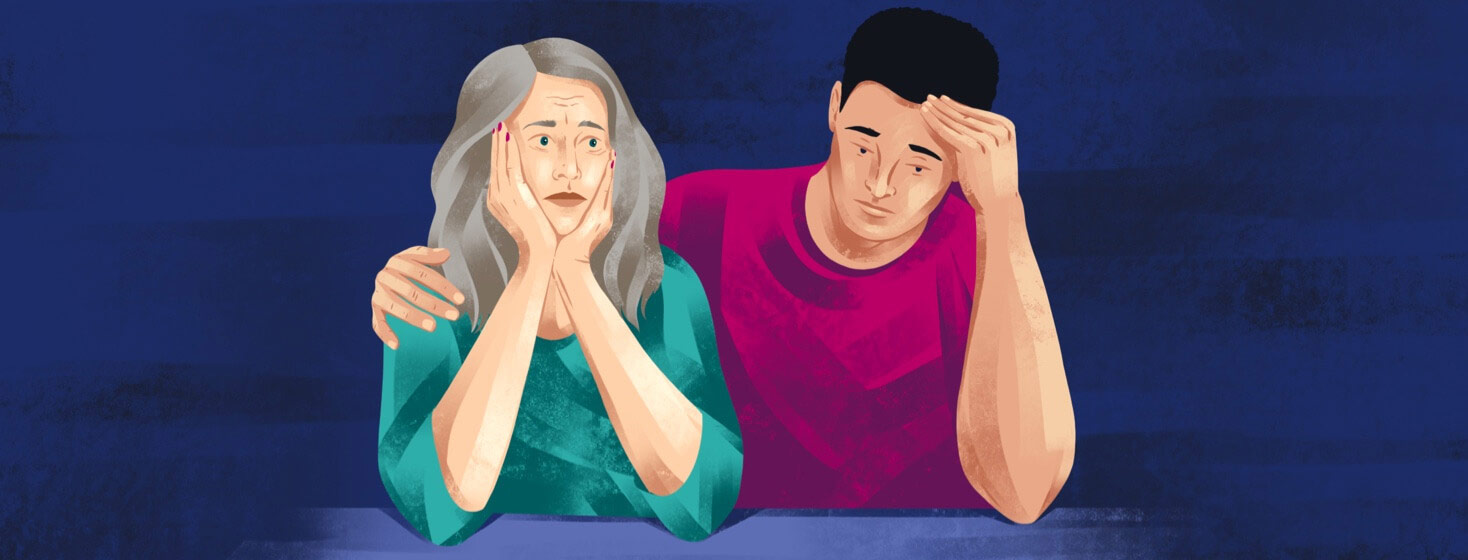From My Son: Dealing with My Mom's Bladder Cancer Diagnosis
How do you break the news of your diagnosis to your adult children? That question is hard enough to answer when your children live locally. But if your children live in another country, how can you tell them about your diagnosis without causing too much stress or anxiety?
I hope that sharing my son's experience of living overseas when I was diagnosed with stage 3 bladder cancer can support anyone who has to give or receive news of a diagnosis while living far away.
Here is my son Phil's story (in his own words), and I hope it helps.
Life was great
Life was going great. I had recently moved to pursue a Master's Degree at The University of Amsterdam. I had a new apartment and a part-time job in a hotel. I was making friends and generally just enjoying all the fun of moving to a new country and city.
But then came the phone call that changed everything. I remember receiving that call like it was yesterday.
The phone call and a stage 3 bladder cancer diagnosis
I sat at my desk in my small but cozy student apartment, surrounded by books and papers, working on a research project. I remember thinking something sounded strange in my mother's voice when she said, "There's something I need to tell you."
From that moment, everything became a blur. My whole body froze, yet my mind raced as I tried to understand and accept what I had just heard.
I don't remember how long the conversation lasted, nor do I remember all the information I was given. The only things I can truly remember are the feelings of panic, despair, and homesickness for the first time ever in my life.
Learning of my mother's diagnosis was world-shattering. My mother had cancer. The big C. That unforgiving, evil parasite that claims so many lives. It just wasn't fair. I immediately decided to try and battle the feeling of despair by informing myself about stage 3 bladder cancer.
Looking for information and support
Unfortunately, I didn't know where to look for information or support at that time. So, like every other person who needs to find something out, I used google to find the answers. This is something I do not recommend.
I rapidly descended into a panic jumping from one website to another, trying to find something positive, something I could grab on to for support, so I knew that everything could turn out ok. But all I saw were shocking statistics and truly terrifying information about the number of people who survive stage 3 bladder cancer or scientific jargon I just couldn't understand.
None of this helped.
Isolation and helplessness
Over the next couple of days, the feeling of isolation and helplessness grew. Within me, a battle between logic and emotion had begun to rage. I had read the statistics and knew the survival percentages, but none of this was helpful.
The only thing I wanted was to be there with my mother and throw my arms around her. Logically, I knew that flying home would not change a darn thing, but being physically and emotionally present was all I craved. I just needed to give her that hug.
Those first few days after hearing the diagnosis was an emotional rollercoaster. I had so many questions and not enough answers. I needed information, but I didn't know where to get it, and all the information I did find only made the situation seem bleaker.
Mom's bladder cancer diagnosis
The questions haunted me from the night I received that phone call: what do I do next? How soon can I get home? Should I quit my study and move home? Or should I stay here? I felt lost, alone, and completely useless. I also felt guilty for the feeling I was making this about myself.
My mother has cancer, and I just don't know what to do.

Join the conversation